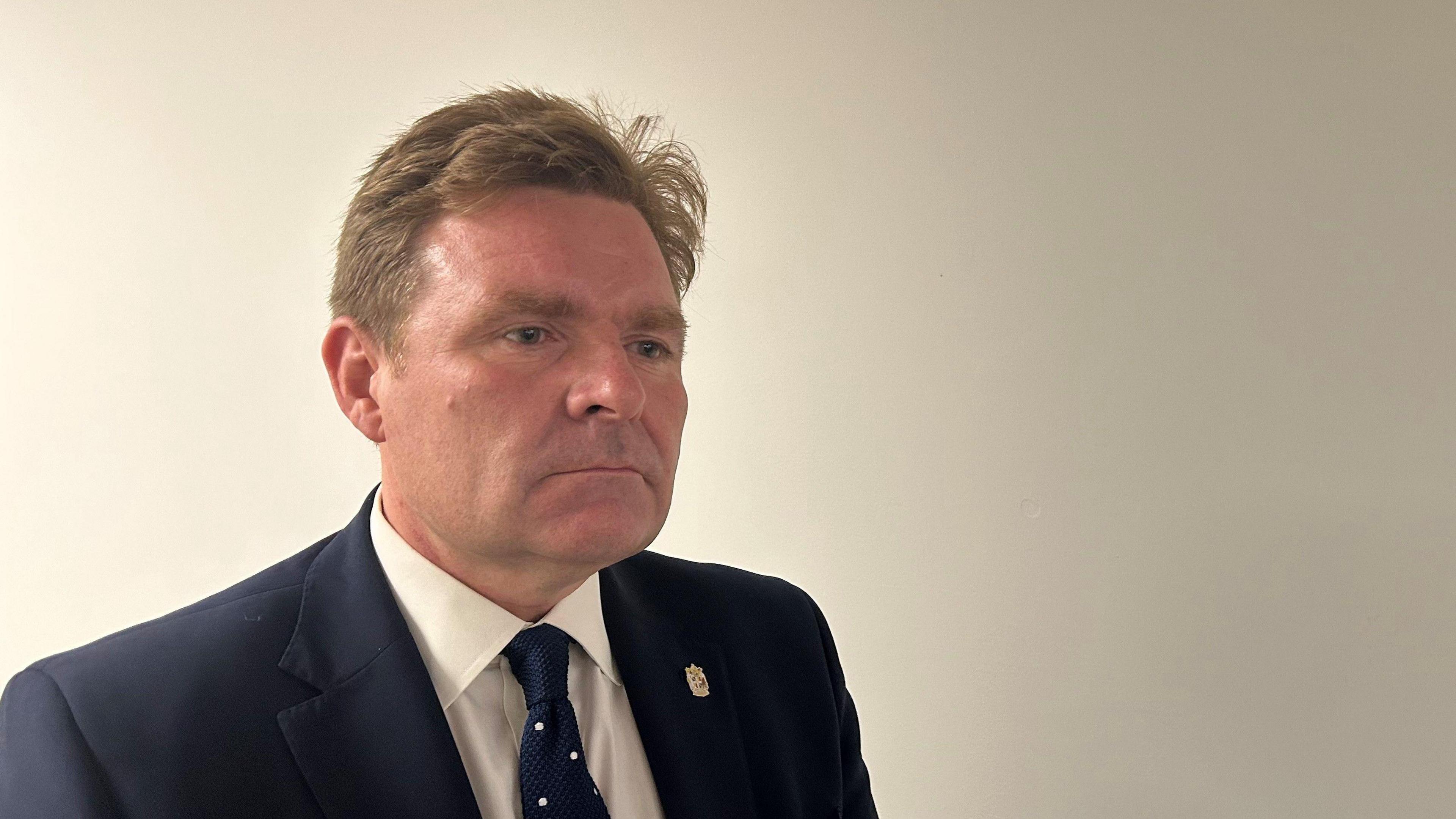City's 10% tax rise approved amid financial crisis
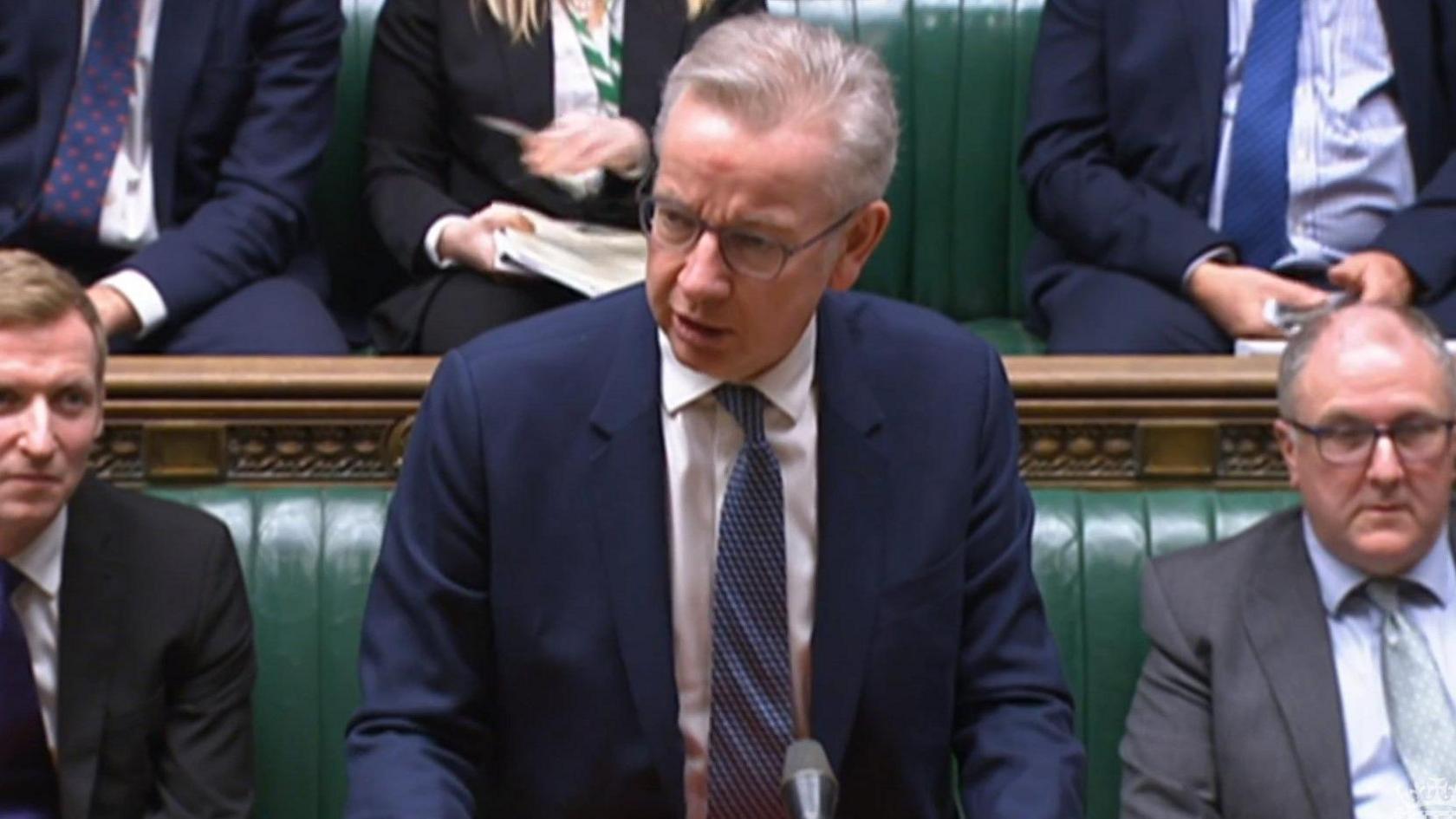
Michael Gove confirmed the rise would be allowed
- Published
Birmingham City Council will be allowed to increase council tax by up to 10% from April.
The government has confirmed it will not block a request from the council’s leadership to raise the tax above a 4.99% cap which would usually trigger a referendum.
The Labour-run authority asked for the rise as it seeks to re-balance its budget, having effectively declared bankruptcy by issuing a section 114 notice in September.
The council needs to save £300m over the next two years, and its financial challenges have been compounded by a £760m equal pay bill and an £80m overspend on an IT project.
The levelling-up secretary Michael Gove confirmed the news in a written statement, external.
He said: “It is disappointing that Birmingham City taxpayers are having to foot the bill for the council’s poor governance and decision making.
“Whilst the government will not oppose this request given the seriousness of the circumstances, any decision to increase council tax is solely one for Birmingham City Council, who should have taken into account the pressures that people in Birmingham are currently facing on living costs.”
Budget postponed
The actual level of council tax is due to be set during the city council’s budget meeting, which was recently postponed by one week to March 5.
Birmingham City Council’s leader, John Cotton, told the BBC in January that residents would only be asked for extra money if needed. He also said the council would ask the government for permission to increase council tax by up to 10% a year over the next two years.
That would mean a potential 21% overall increase for residents by April 2025 - equivalent to roughly £400 a year on a Band D property’s bill.
Follow BBC West Midlands on Facebook, external, X, external and Instagram, external. Send your story ideas to: newsonline.westmidlands@bbc.co.uk, external
Full coverage: Birmingham's budget crisis
- Published1 February 2024
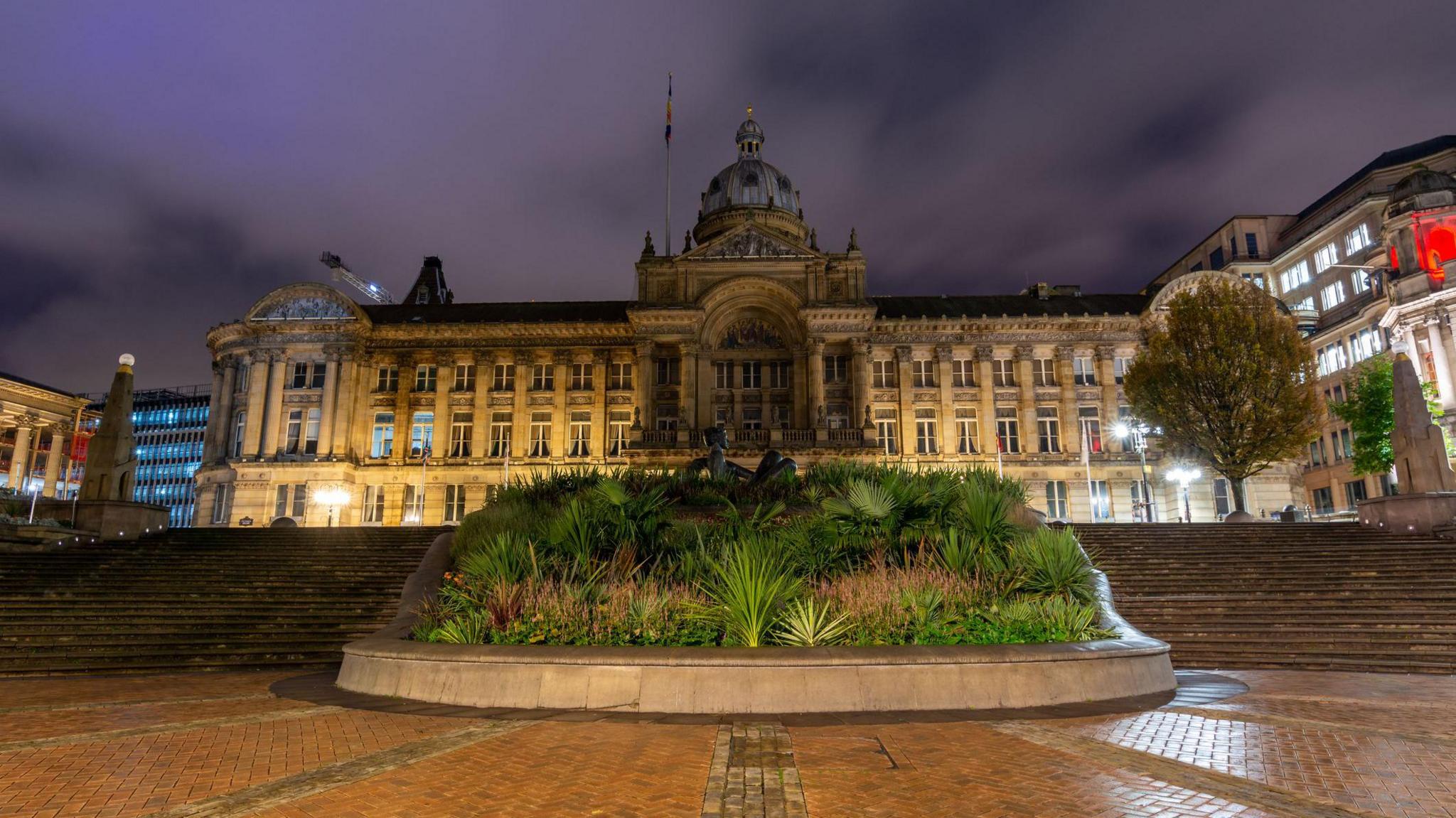
- Published31 January 2024

- Published16 January 2024
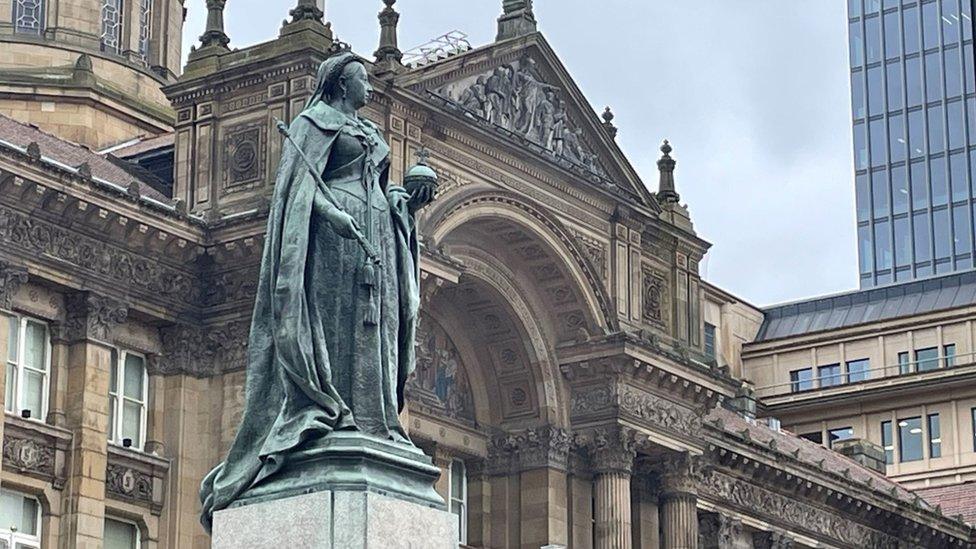
- Published6 December 2023
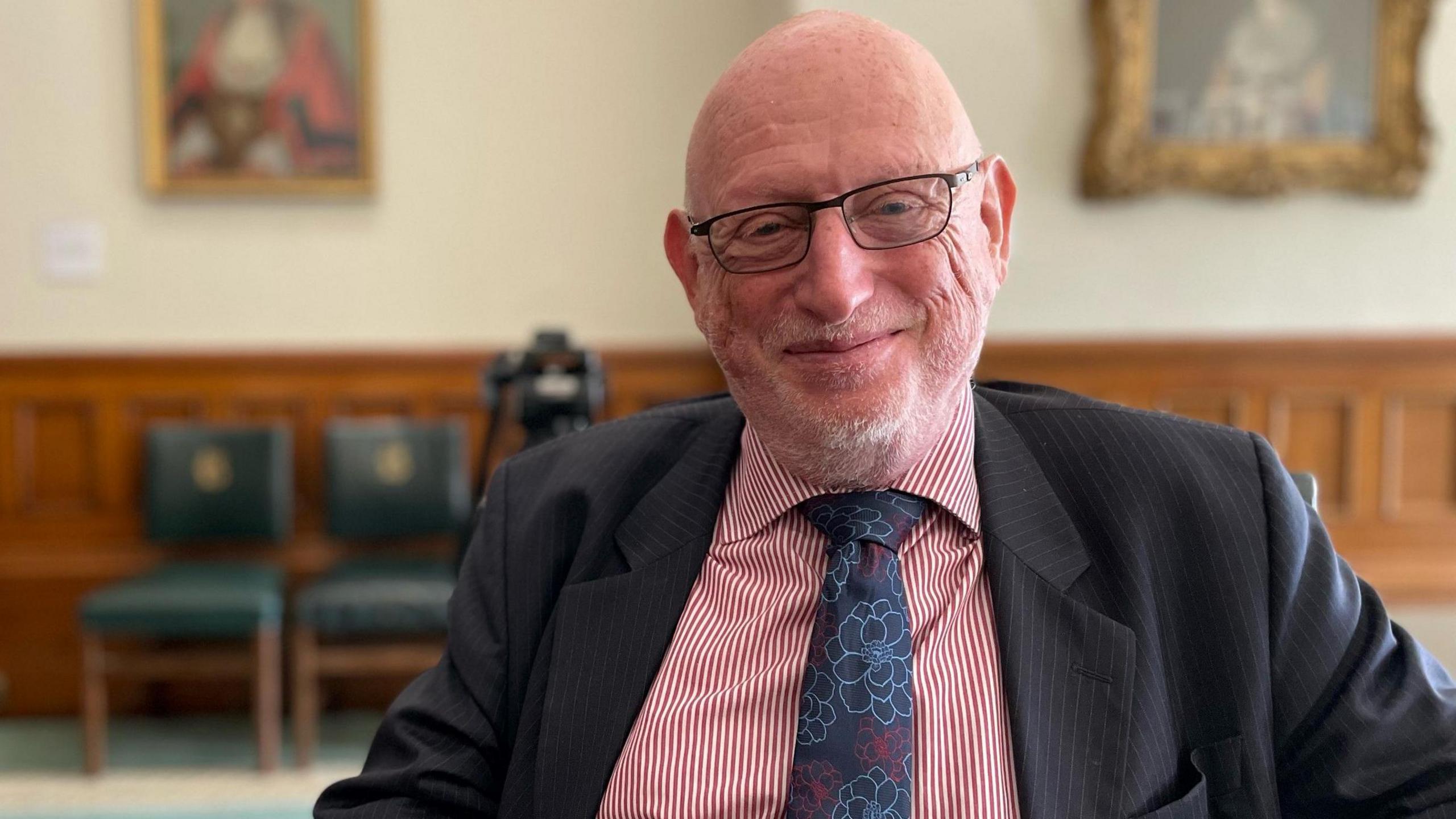
- Published9 January 2024
